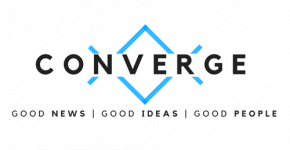Digital marketing travels beyond social media and a company website. Everything we see on our smartphone and computer screens – ads, campaigns, search engine results, newsletters- are all products of it. If you’re about to start your own company with an objective of reaching out to a diverse market not limited to one particular area, you need to employ the right digital marketing strategies to attain that goal.
By this time and age, one might think digital marketing is already thoroughly understood by all companies. But that doesn’t appear to be the case. According to YPO member Thomas Donohoe, who’s also a professional digital marketer, many chief marketing officers aren’t aware of the difference between SEO (Search Engine Optimization) and SEM (Search Engine Marketing). Such unawareness may seem unimportant, but ignorance can have a company end up wasting money on ineffective marketing.
That said, if you also need to broaden your digital marketing knowledge, let’s start with the basics.
1. Website
Having your own page on all social media platforms is clever, but it isn’t enough. Your company needs its own website because that will serve as its official digital home. Experienced digital marketing agenciesin London and other metropolitan areas specialize in helping companies design their own competitive and innovative websites that can drive plenty of organic traffic, so investing in their services is necessary.
2. Trade Name Search Engine Advertising
To make your company name recognized by search engines, it needs to be advertised, especially on Google and Bing.
3. Organic Traffic
In real life, traffic means the movement of people or vehicles going to and from a place. It’s the same with digital marketing, only it refers to the volume of internet users visiting your website. It’s called organic, because it’s free and driven solely by internet users, but generated by Search Engine Optimization.
4. Search Engine Optimization
This is a digital marketing strategy employed by companies to make their websites rank high on search engine results pages (SERP). The higher your ranking, the more organic traffic your website will gain.
5. Paid Traffic
If there’s free, organic traffic, companies may also use paid traffic or paid search. In this strategy, companies bid on keywords and release ads around those keywords to be displayed on SERP. You’d see examples of paid traffic from title tags (website links) in SERP with the word “Ad” beside them, or from the ads on the right side.
6. Keyword
A keyword is a word or phrase typed in by internet users to search for a particular topic. For example, if they want to buy swimwear, they might use “where to buy swimwear online” or “swimwear London” as keywords.
7. Search Engine Marketing
Like paid traffic, companies also bid on keywords in search engine marketing. Through pay-per-click (PPC) ads, company websites will earn a high SERP ranking.
8. Pay-per-Click Ads
When users search for topics in search engines, ads may also appear in the results. Every time the ad is clicked, paid traffic for the website will be generated, and the advertiser gets paid by the company.
9. Meta Description
If you use a search engine, you would notice a few lines of text placed below the title tag, like a brief description of the brand or a certain topic. That is the META description.
10. Landing Page
This refers to the page on a company’s website where users are directed based on their expression of specific interest, or simply put, the keywords they used. It acts as the “entry page” to a website.
Being familiar with these important terms will give you a good kickstart to going deeper into the world of digital marketing. There is still a myriad of complex terms and trends to understand, but knowing the basics already contributes considerably to putting your company on top.





